After five years, Afrochella has held its final performance. According to festival organizers, moving forward, Afrochella will be known as Afro Future Fest.
In October, Goldenvoice, the company responsible for the famous Coachella music festival held every year in the California desert, sued Afrochella for copyright infringement. According to Rolling Stone, the lawsuit claims the similarity between the names of the festivals could cause confusion and imply “affiliation, connection, or association” with Coachella.
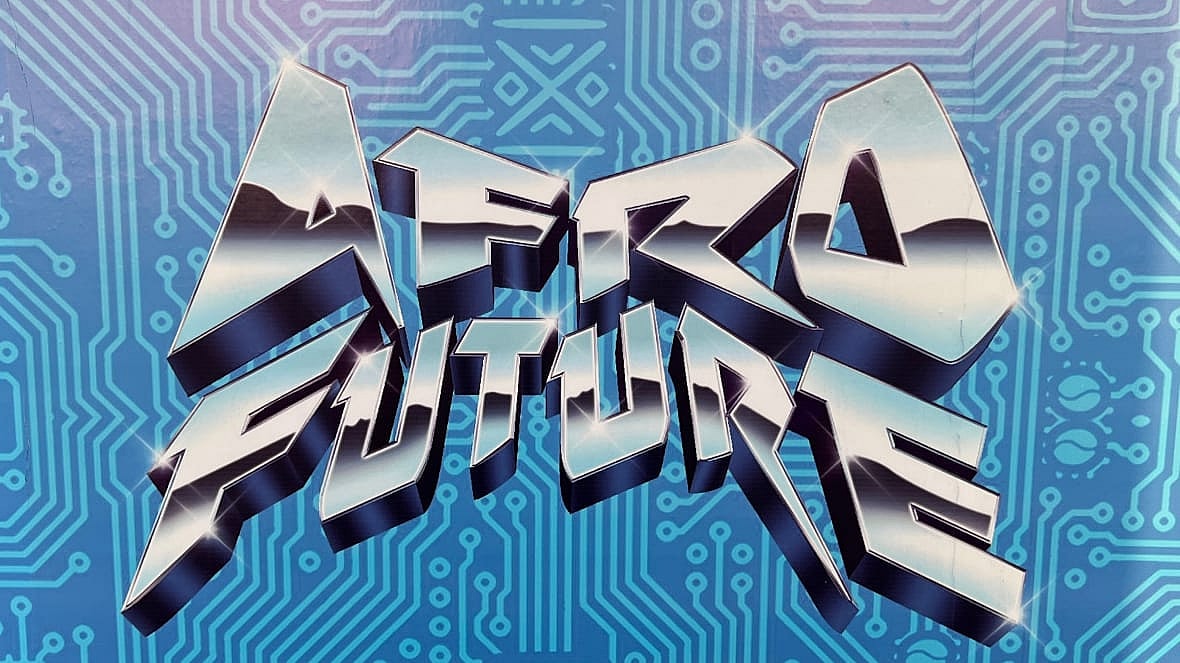
Though the company has not publicly responded to the lawsuit, a representative for the festival said the team is currently in the early stages of transition planning and rebranding.
This year’s festival theme was Afrofuturism, and much of the signage, including wording on the main stage which read “Afrochella is… Afro Future,” hinted at the change.
On the second day of the final iteration of Afrochella, Ghanaian culture seemed to be an intentional focal point as Ghanaian artists with storied careers took to the stage.
Mzbel, a Ghanaian “hiplife” artist whose career has spanned at least 20 years, performed a short set. She and her background dancers wore kente cloth outfits as she performed songs like 2007’s “16 Years.” Though her performance didn’t have the same pace as many of the more modern artists, the audience seemed to appreciate hearing recognizable throwback hits.
Another hiplife artist, TiC (formerly TicTac), performed songs such as “Fefe n’efe,” and “Kwani Kwani.” According to announcers at the festival, the rapper is the first Ghanaian artist to reach number one on the MTV Base music charts.
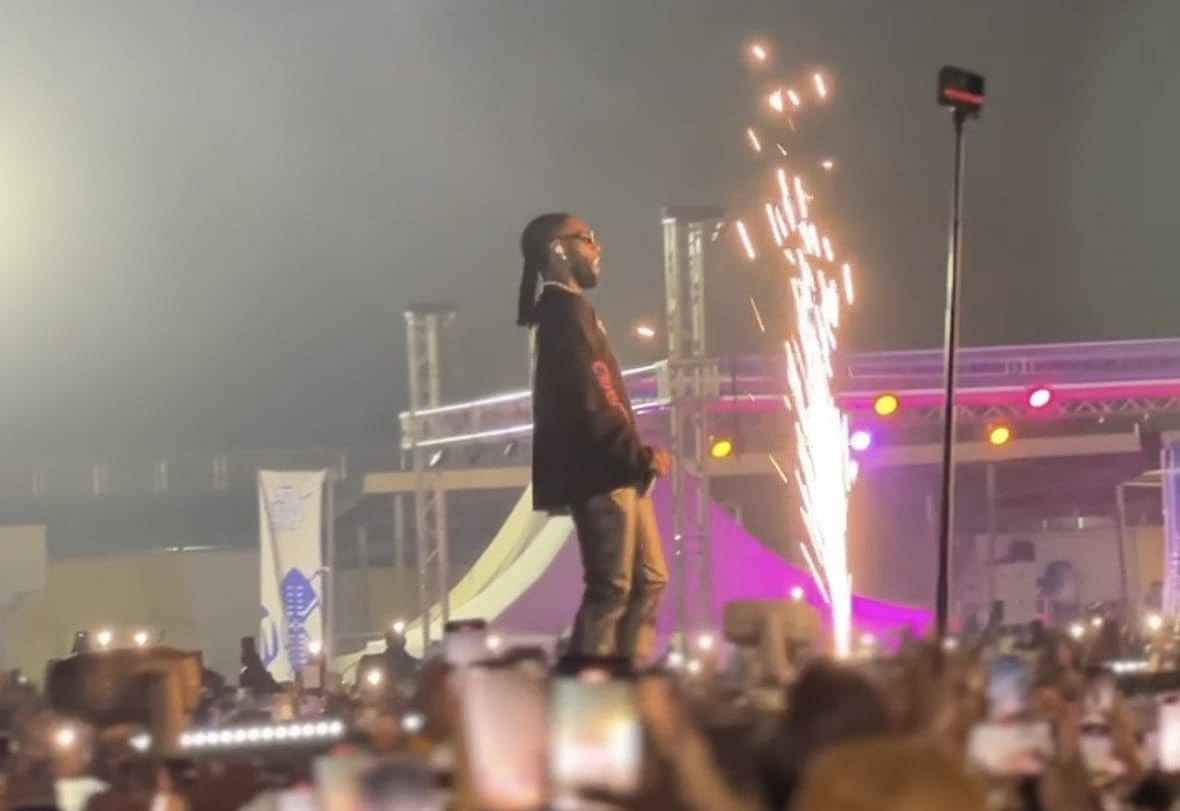
On the festival’s second day, the final two headliners were Nigerian artists Asake and Burna Boy. Loud and proud Ghanaian Shatta Wale, who had the biggest performance of day one, was originally slated to be featured on Afrochella’s final day but swapped with Burna Boy after an unexpected delay.
For the final performance of the night, Burna Boy entered the stage after a chorus of “Here comes the African giant” from the song “African Giant” off his 2019 album of the same name. He kicked off his performance with the song “Science,” accompanied by two stationary drummers at the top of the stage, before launching into a full set of his hit songs.
Though the activations at the festival didn’t change from one day to the next, it was clear festival organizers wanted to keep local culture on display. Centrally located in the open field space was a “Hausas of Ghana” activation.
Other West African nations, including Nigeria, are home to communities of Hausa people, but details about their contributions to Ghanaian culture were on full display, making the activation another popular photo destination for concertgoers.
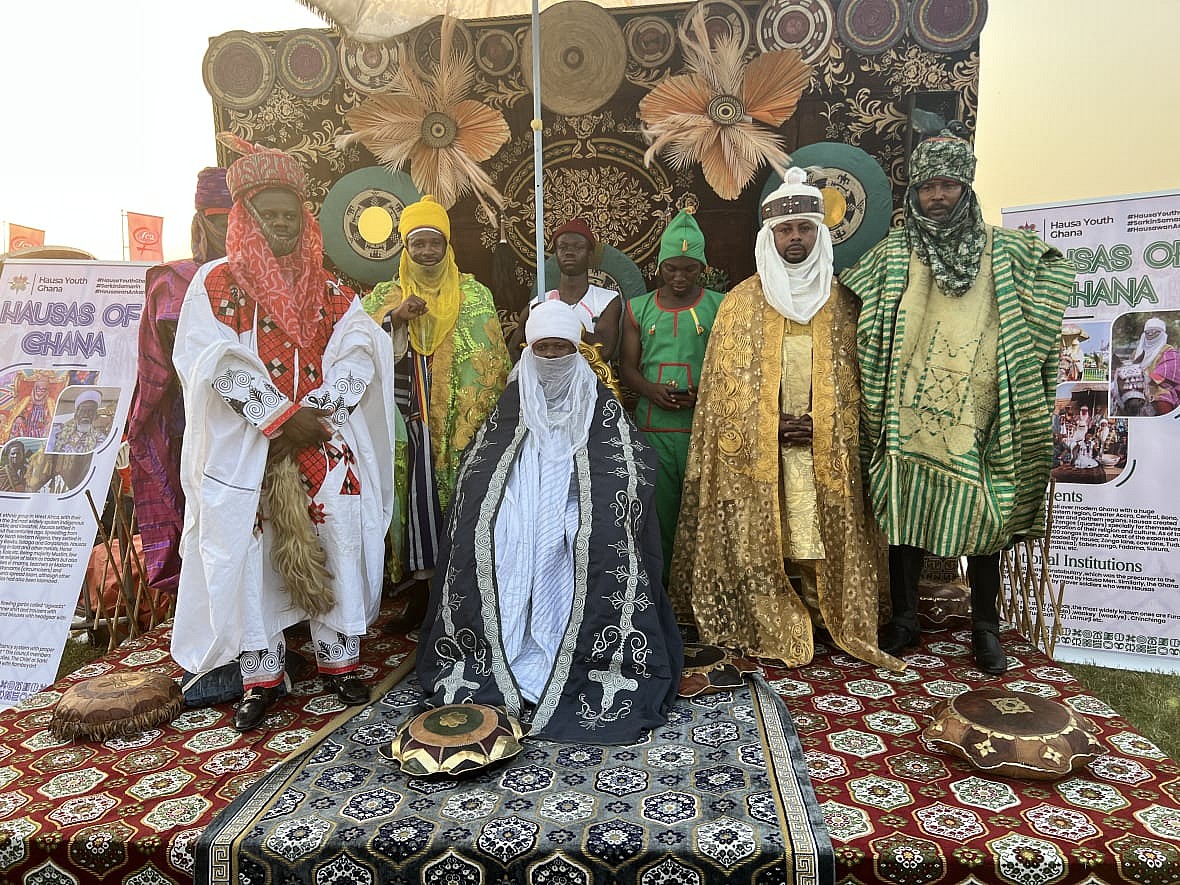
Many, if not most, of the festival’s food vendors sold traditional Ghanaian food and drink. Accra-based Ewuraewoa Aso of Eno’s kitchen handmade local drinks made of hibiscus and tiger nuts. She has been building her business from home for the last five years.
Aso said she applied to be a vendor at Afrochella to market her business and meet new people. “It’s been awesome — a lot of people from other countries like Nigeria, Germany, Cote d’Ivoire — they’re all here, and they love our drinks,” she added.
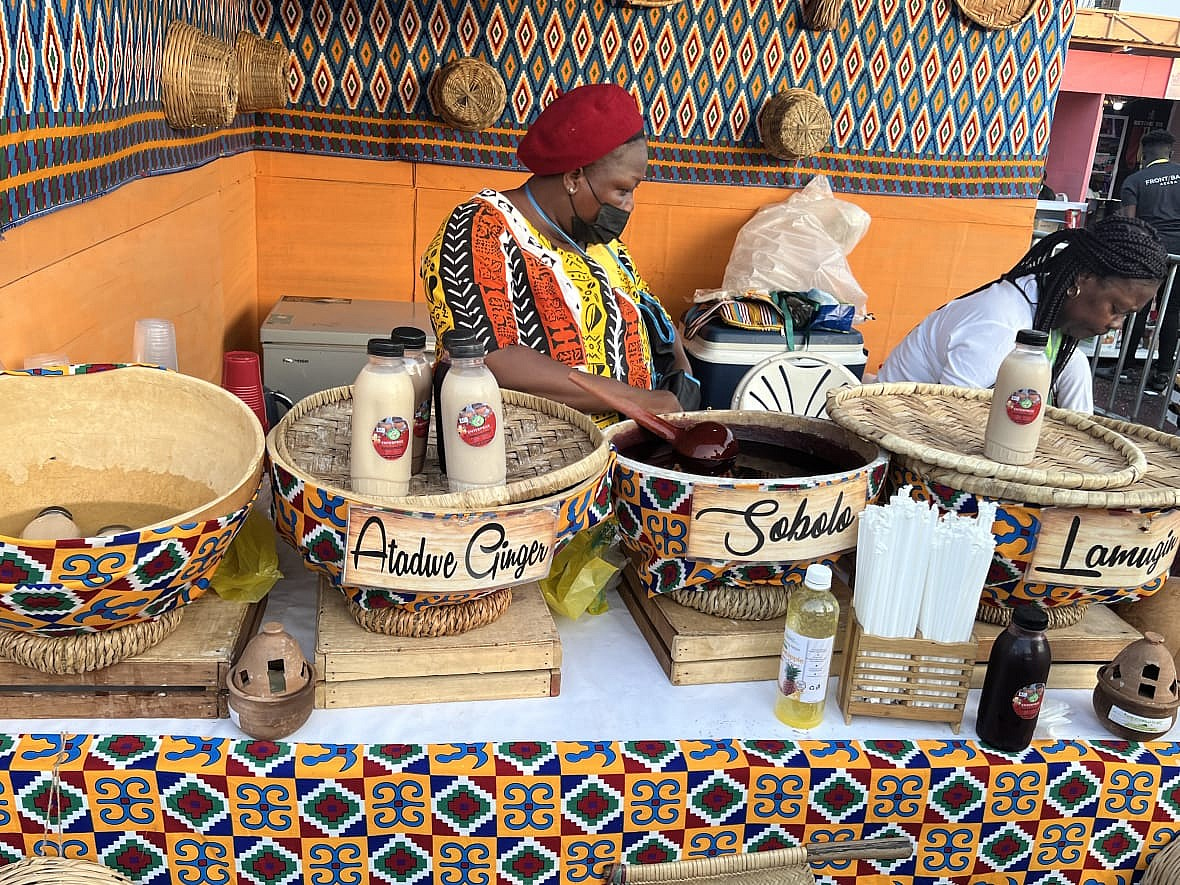
Maame Efua, a 31-year-old food vendor who has a Ghanaian food truck in Austria, traveled back to her home country just to participate in Afrochella as a vendor.
“Before I started being a vendor here, I just attended it once, and I just liked the vibe, the way that people mingle and vibe with everybody,” she explained, adding that she wanted to share her food with the type of crowd that comes to Afrochella.
Curious about Afrochella? Videos of performances from this year’s festival can be found on YouTube and VEVO, and a long-form documentary about the festival is also in the works, according to festival organizers.
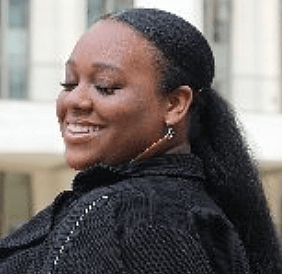
Chinekwu Osakwe is a weekend editor for theGrio. She is a graduate of NYU and Columbia University and has written for Rolling Stone and Reuters.
TheGrio is FREE on your TV via Apple TV, Amazon Fire, Roku, and Android TV. TheGrio’s Black Podcast Network is free too. Download theGrio mobile apps today!

